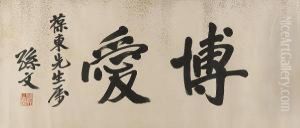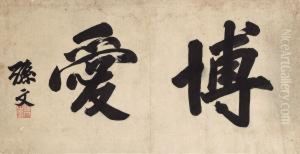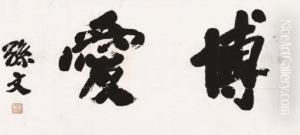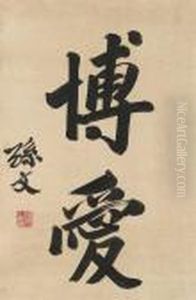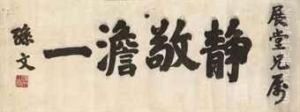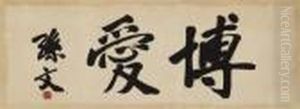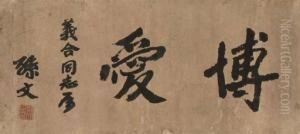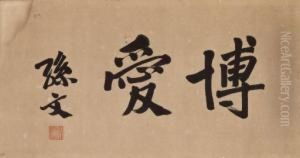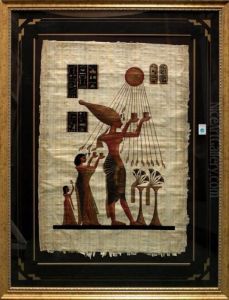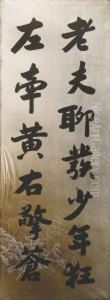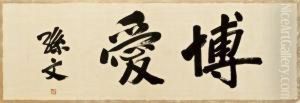Sun Wen Paintings
Sun Wen, better known as Sun Yat-sen, was a Chinese revolutionary, physician, and political leader who played a pivotal role in overthrowing the Qing Dynasty, the last imperial dynasty of China, marking the end of over two thousand years of imperial rule and the beginning of a republican China. Born on November 12, 1866, in the village of Cuiheng, Zhongshan, Guangdong province, Sun Yat-sen was exposed to Western ideas early in his life, having moved to Hawaii to join his elder brother and receiving his education in Honolulu.
Sun Yat-sen's early career was marked by his medical education, which he pursued in Hong Kong, becoming a Christian in the process. However, his career as a physician was short-lived as he quickly became engrossed in political activism aimed at reforming China. His initial attempts at reform were through peaceful means, but after the failure of several reform attempts and a coup, he concluded that the Qing government could not be reformed from within and must be overthrown.
After several failed uprisings, Sun Yat-sen's efforts finally culminated in the Wuchang Uprising in 1911, which led to the fall of the Qing Dynasty and the establishment of the Republic of China in 1912. Sun was instrumental in the founding of the Republic and served as its provisional first president. However, his tenure was short due to the lack of military support and the political landscape at the time, leading to his resignation in favor of Yuan Shikai, a move he later regretted as Yuan declared himself emperor.
Throughout his life, Sun Yat-sen was involved in significant political movements and parties, including the founding of the Tongmenghui (United League), which was a crucial force in the anti-Qing movement, and later the Kuomintang (KMT), the Nationalist Party of China, which played a significant role in Chinese politics for decades. Sun's political ideology, known as the Three Principles of the People (nationalism, democracy, and the people's livelihood), became the guiding philosophy of the KMT and influenced China's political development significantly.
Sun Yat-sen's legacy is complex, as he is considered a national hero in both the People's Republic of China and Taiwan for his role in ending imperial rule and founding the Republic of China. Despite his limited success in seeing through his political ideals during his lifetime, his vision for a democratic and modern China laid down the foundation for future leaders and remains influential in Chinese politics. Sun Yat-sen passed away from cancer on March 12, 1925, in Beijing, but his legacy and vision for China continue to be celebrated and studied.
